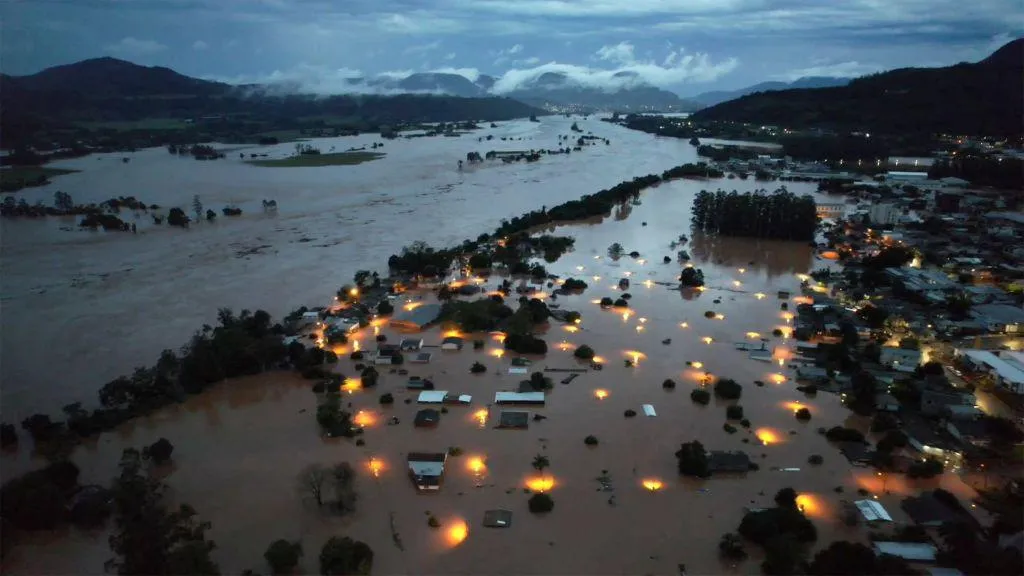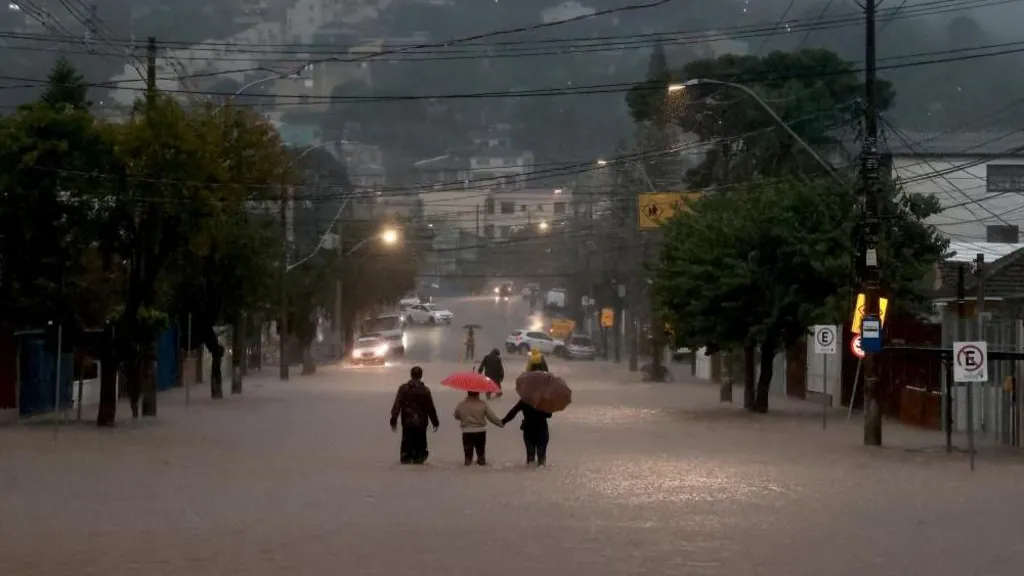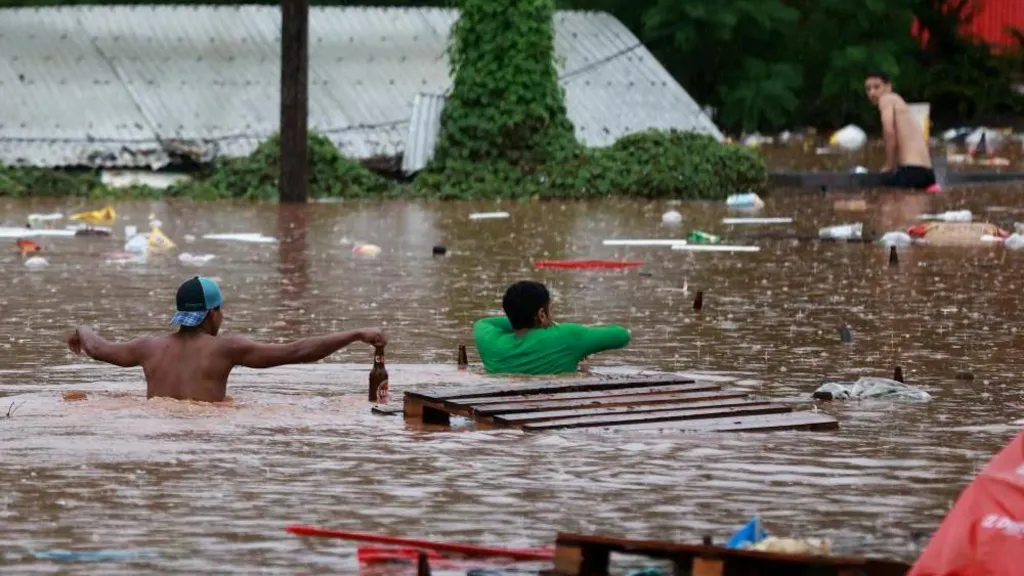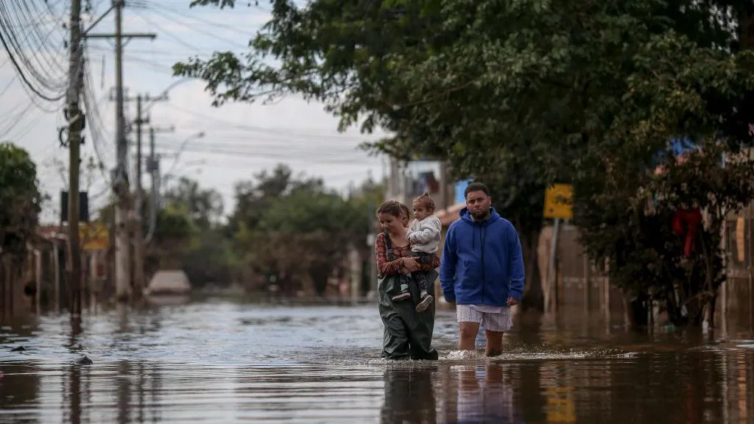Authorities in the Brazilian state of Rio Grande do Sul have confirmed 54 cases of the waterborne leptospirosis disease after the region experienced unprecedented floods in the months of April and May.
Four others have died after contracting the illness, which is transmitted through water contaminated with infected animals' urine, like rats.
As many as 800 suspected cases are currently being investigated, the state's health department said in a statement.
More than 165 people were killed in the floods and many others are still missing.
More than 2.3 million Brazilians from 469 municipalities in Rio Grande do Sul have been affected by what has been described as a "climate disaster" by the Brazilian government.
At least 581,000 people are displaced, while temporary accommodation has been able to house 55,000 Gauchos (people from Rio Grande do Sul), according to local media reports.
Many cities in the state are still under water and conditions could see leptospirosis cases go up.
The disease's symptoms include fever, muscle ache and nausea followed by vomiting.


The state's health department has warned residents that flood water may mix with sewage, leading to the transmission of diseases like leptospirosis and hepatitis A.
Brazil vaccinates its population against hepatitis A, but given the magnitude of this advises people to still avoid consuming water or food that might be contaminated with water from the floods.
Recovery and rescue efforts are ongoing and the federal government has allocated more than R$1,8bn (£275m, $348m) to support Rio Grande do Sul.
As flood waters lower, the full-scale of the damage in Brazil's southernmost state is becoming clearer. Those who were able to return to their homes try to salvage belongings that withstood the flooding.
Rio Grande do Sul has a population of more than 10m inhabitants across 497 municipalities. The state borders Uruguay and Argentina.

'Climate disaster'
Critics of Rio Grande do Sul's government have accused the state's governor of being complicit in the damage caused because of his stance on environmental policies.
In an article published on Folha, journalist Eleonora de Lucena wrote that Rio Grande do Sul's right-wing leadership has meant local politicians were catering to the interests of soya farmers and neglecting environmental protection commitments.
Under governor Eduardo Leite's leadership, more than 400 changes to the state's environmental legislation have been made including a law that allows dams to be built in environmentally protected areas.
But during an interview with BBC Brasil last week, Mr Leite defended his policies, adding that dams in protected areas would allow for food production.
The floods were a result of intense and unprecedented rainfall in the region. But a hydroelectric dam collapse after days of heavy rain at the beginning of May exacerbated mass displacement.

Latest Stories
-
I want to focus more on my education – Chidimma Adetshina quits pageantry
2 hours -
Priest replaced after Sabrina Carpenter shoots music video in his church
2 hours -
Duct-taped banana artwork sells for $6.2m in NYC
2 hours -
Arrest warrants issued for Netanyahu, Gallant and Hamas commander over alleged war crimes
2 hours -
Actors Jonathan Majors and Meagan Good are engaged
2 hours -
Expired rice saga: A ‘best before date’ can be extended – Food and Agriculture Engineer
3 hours -
Why I rejected Range Rover gift from a man – Tiwa Savage
3 hours -
KNUST Engineering College honours Telecel Ghana CEO at Alumni Excellence Awards
3 hours -
Postecoglou backs Bentancur appeal after ‘mistake’
3 hours -
#Manifesto debate: NDC to enact and pass National Climate Law – Prof Klutse
3 hours -
‘Everything a manager could wish for’ – Guardiola signs new deal
4 hours -
TEWU suspends strike after NLC directive, urges swift resolution of grievances
4 hours -
Netflix debuts Grain Media’s explosive film
4 hours -
‘Expired’ rice scandal: FDA is complicit; top officials must be fired – Ablakwa
5 hours -
#TheManifestoDebate: We’ll provide potable water, expand water distribution network – NDC
5 hours

